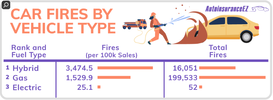- Joined
- 28 August 2022
- Posts
- 8,095
- Reactions
- 13,406
Obviously most pollies are taught that classic dance routine The Side Step Away.It would be far more surprising if a politician anywhere actually answered a question.
mick
Obviously most pollies are taught that classic dance routine The Side Step Away.It would be far more surprising if a politician anywhere actually answered a question.
mick
Nothing like seeing an undersized and powered car towing a double horse float or tamden axle2 4 foot van. More common than not around here, especially during the holiday periods.I wouldn't be surprised if they didn't rate E.V vehicles for towing caravans, especially big ones, time will tell.
When you add the battery weight to the towbar weight and the load carrying capacity, my guess is most vans will exceed the axle and tyre load capacity.
Good for the owners of the caravan sites and nosh suppliersI think we will be all driving EV soon because we won't be able to buy anything else but we do have unique problems here in Oz
I saw this photo on another forum, taken at Sandfire Roadhouse WA yesterday, the queue extended in both directions from the roadhouse, north and south
At present each car would take maybe 10 mins to fill, imagine when each takes 90mins to charge and only 3 or 4 at a time as it is solar and diesel generators for power
View attachment 160050
They will fill their camping area every night while people charge up
That's where flow batteries come into their own.Endurance Of Electric Vehicles Falters In Extreme Heat
https://www.zerohedge.com/technology/endurance-electric-vehicles-falters-extreme-heat
makes you wonder about home battery packs in some regions as well
i avoided investing in uranium because of the political flip-flopping that usually goes with it
BTW life-expectancy was much less the last time we relied on wind power
Until we have EVs that are actually built for towing caravans, this will not be a problem.At present each car would take maybe 10 mins to fill, imagine when each takes 90mins to charge and only 3 or 4 at a time as it is solar and diesel generators for power.
Endurance Of Electric Vehicles Falters In Extreme Heat
https://www.zerohedge.com/technology/endurance-electric-vehicles-falters-extreme-heat
makes you wonder about home battery packs in some regions as well


It certainly gets hot at Sandfire. At this time of year it's pretty comfortable but I turned up there on new year's day and early in the year we had hot days exceeding 50⁰C
I was surprised that EVs did drive through that stretch between Broome and Port Hedland, rare as it was. I was also surprised that they were allowed to charge for free at Sandfire.
MickFord Australia has released the Australian specifications and the final pricing of the soon-to-be-released For Mustang Mach-E, the auto giant’s first electric passenger car in Australia.
It will be offered in three variants – Select, Premium and GT – and, as announced previously, will range in price from just below $80,000 – before on road costs – to more than $107,000 (plus one roads) for the top of the range variant.
That puts it well above the price range of Australia’s best selling electric sedan, the Model 3, which now starts at around $57,000, plus on roads (but also before rebates), and higher than the Polestar 2 and Hyundai Ioniq 6.
“Mach-E is an extremely exciting addition to our EV line-up, and brings all the excitement of Mustang, with the tech, performance and luxury expected of a fully-electric SUV,” said Andrew Birkic, the president and CEO of Ford Australia.
“We can’t wait for Mach-E customers to get behind the wheel in just a few months.” The car is due to arrive in Australia in the last quarter of 2023.
Pricey set of wheels, but will the average Joe be able to afford one
That is the aim.no wealth : no carPricey set of wheels, but will the average Joe be able to afford one
That is the aim.no wealth : no car
Speaking of high heat... Thermal runaway and associated horrors
Auto expert John Cadogan is pretty good, his contacts in the Coast Guard and access to the ships internal camera system is amazing
No one knows the cause, yet.
Wayne looks as if you are in a mobile time bomb !!!!It doesn't really matter what started the fire. I think the point is that once those battery cells go into thermal runaway, you've got big problems. Depending on the situation, it could be catastrophic.
It's given me pause to think as I have a lithium battery setup in my work ute, as well as at least two LPG bottles ?
It doesn't really matter what started the fire. I think the point is that once those battery cells go into thermal runaway, you've got big problems. Depending on the situation, it could be catastrophic.
It's given me pause to think as I have a lithium battery setup in my work ute, as well as at least two LPG bottles ?
Cadogan knows sfa about EVs.I'm wondering what the difference is of EV batteries that goes 'into thermal runaway' and the batteries in mobile phones, laptops, portable vacuum cleaners, which are all transported in bulk surrounded in plastic components and packaging.
In the future, a large number of road vehicles will not be powered by fossil fuels, and in order to prevent incidents in connection with such a change in the transportation sector, regulations and practices should stay one step ahead. Road tunnels and underground garages constitute particularly high-risk environments with regard to fires and explosions. The transportation sector is currently undergoing major changes, driven in large part by the gradual transition towards a fossil fuel-independent society.

Hello and welcome to Aussie Stock Forums!
To gain full access you must register. Registration is free and takes only a few seconds to complete.
Already a member? Log in here.